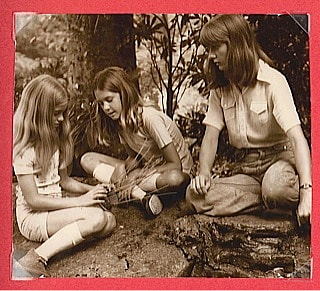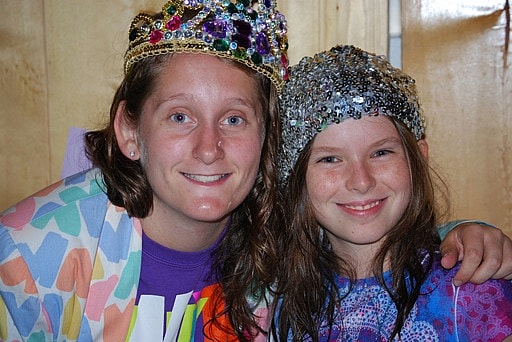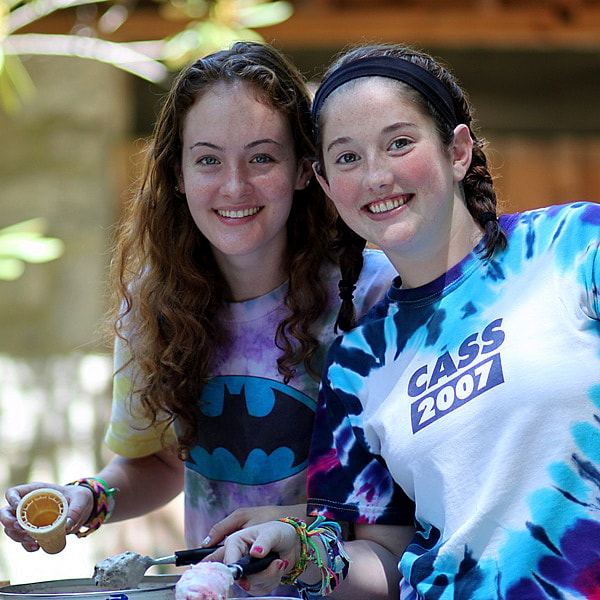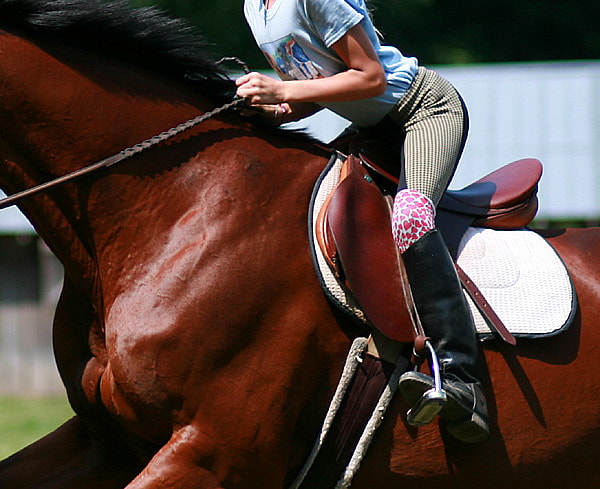One of the traditional mountain crafts that is still taught at Rockbrook today is basketweaving. Curosty, our weaving and basketry center, has been the home of this mountain activity since Rockbrook’s founding in 1921. With its location right next to the creek, it is the ideal sight to learn this ancient art. Campers soak their reeds (dried grass) in the creek for several hours until the reed is soft and pliable. Then they are able to weave them together to make baskets of all shapes and sizes. For the younger campers we provide a weaving base which helps them to arrange their reeds in the proper order. It is quite a special moment when all of your weaving efforts pay off and you have a functional art piece, handmade at Rockbrook!
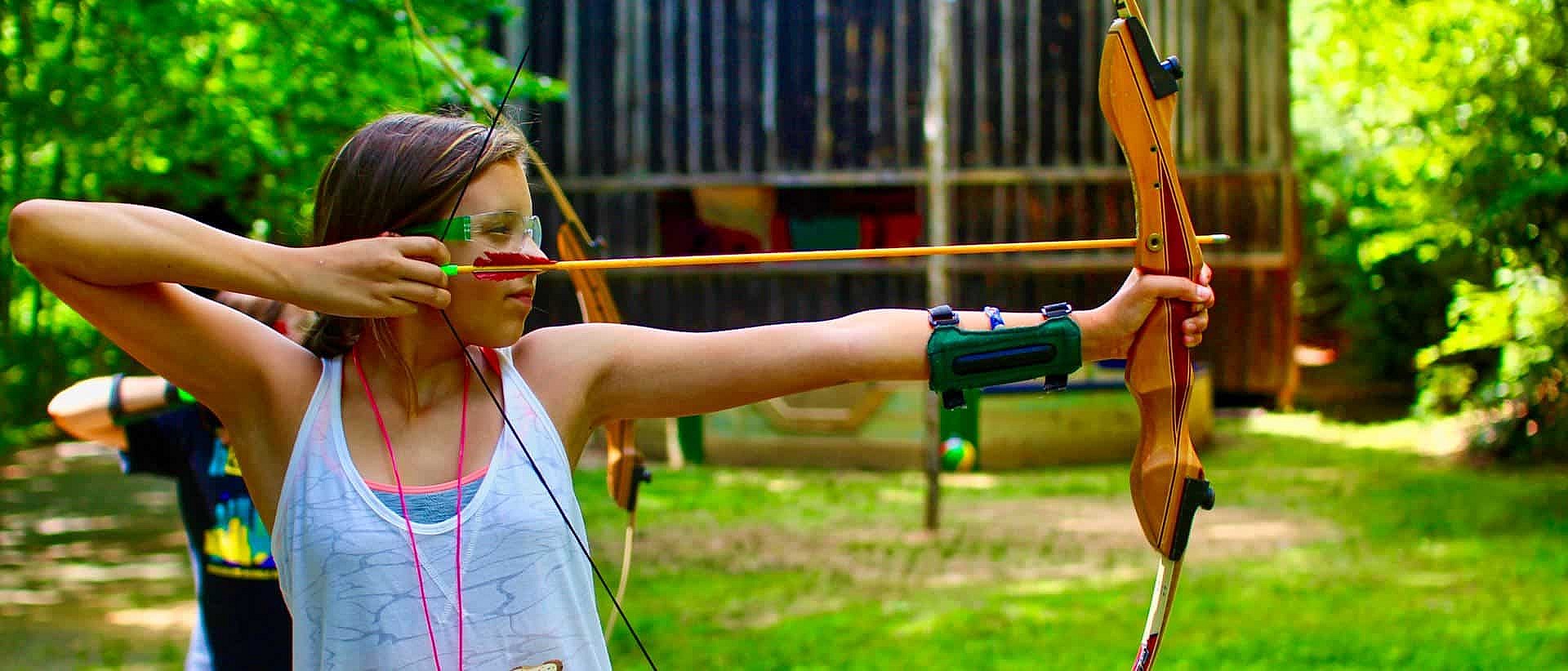
Camp Blog
Market Your Skills
Jeff’s most recent staff blog outlined the benefits of your job as a camp counselor on your long-term career. Instantly, you become a powerful tool in society. Simply put, you change the lives of today’s youth. When you’re a part of the so-called “camp world” that is so easy to understand. But once you find yourself attempting to enter the job market, so far away from candy break, lookout duty, fairy parties, and birthday night, how do you market your skills? How do you translate the responsibilities of camp life into tangible, meaningful statements on your resume?
Chris Thurber’s recent article, Writing Camp Jobs On A Resume, delineates, in three main points, how to promote your summer leadership experience to your potential employer. First, he argues, you must “reverse the curse.” The world is well-versed on the camp image portrayed by Hollywood; food fights, panty raids, crazy teen partying. We all know this portrayal is the farthest thing from the truth. Now convince your perspective employer of this. Own your title and make it clear what your exact role was at camp. “Division Leader for the Youngest Girls” is far more comprehensible than “Junior Linehead.”
Once you’ve established a clear title on your resume you should effectively describe your role at camp. According to Thurber, it’s all about wording. “A front-line camp counselor has either ‘Got kids from one activity to another, and made sure the kids weren’t bullying each other’ or ‘Led children and teens through a creative sequence of challenging activities’ and ‘Responded decisively to misbehavior and social conflict by implementing collaborative problem-solving, logistical consequences, and one-on-one counseling.'” The latter fairly and accurately showcases your responsibilities while at camp.
To situate your time at camp in the realm of distinguished, competitive experiences, rather than just a “summer job”, you must communicate about yourself as a professional. As Thurber asserts “No responsibility rivals that of caring for children.” If you wish for others to take you seriously, you must first take yourself seriously. Recognize your value in society and clearly illustrate your success to others.
I cannot wait to see our Rockbrook counselors leading multimillion dollar litigation cases, discovering a cure for cancer, and continuing to change the world well beyond our wooded mountain.
The Brevard Music Festival
We came across an interesting document the other day while doing some research for the Rockbrook archives that features Nancy Carrier, Rockbrook’s founder. We have mentioned in a previous blog post that Nancy Carrier was instrumental in the creation of The Brevard Music Center and served on it’s board of directors until her death in 1977. Here is a copy of the Music Center’s very first summer series from 1946, featuring a great picture of Mrs. Carrier.
Parent, Alexandria, VA
“You folks do this beautifully. We’ve tried two other camps, and THIS was what we’d been looking for the whole time. The people + the tradition + the philosophy = spectacular experience.”
Read more testimonials.
Be a Camp Counselor Instead
Did you know that being a summer camp counselor is more beneficial to your career than taking a summer internship, that the skills practiced and learned working at camp have far more value than the clerical duties often assigned college student interns? That’s exactly the claim put forward by Darryl Brown in his short article appearing in USA Today. He describes being a camp counselor as the “perfect summer job.”
“In this job, I am part of an organization that gives me duties that are critical to its long- and short-term success. Supervisors give me responsibilities such as interacting directly with customers on a daily basis, and they fully integrate me into the professional hierarchy. To top it all off, I am learning legitimate skills that will help me develop professionally when I move into the workforce.”
It’s true; having “camp counselor” on your resume is a very good thing. The skills required to be a great counselor are valuable and in demand by employers, things like problem solving, leadership, creativity and imagination, being a “team player,” stamina, compassion, responsibility and maturity.
Being a camp counselor means receiving training in all of these areas, and then means practicing them in the real world, working with kids and taking on the complexities of life in a summer camp community. Everyone will tell you that being a camp counselor was the most challenging and the most fun job they ever had. I suspect most summer interns won’t be able to say that.
What are you going to do this summer?
Rockbrook Road Trip 1930’s
We found some wonderful pictures of Nancy Carrier, Rockbrook’s founder, and her family on a road trip. The photographs are dated from the 1930’s. Nancy is pictured on the left in the first photograph and second from left in the middle photograph. She is also pictured at right taking a photograph. We can only imagine the adventures they had as they all piled into the car and hit the road. Other pictures we found show the same group camping out on a mountain top with a gorgeous view, riding in the car, taking photographs and hiking. It looks like quite an adventure! Nancy Carrier’s adventurous spirit continues today at Rockbrook!
If you haven’t seen this video about the history of Rockbrook Camp, it’s a “must see!”
Riding English
At Rockbrook, our camp Equestrian Program teaches “English Riding” as opposed to “Western Riding.” But what is the difference between these two forms of horseback riding?
One difference you’ll notice right away, even before mounting your horse, is in the saddles. Western saddles are wider and deeper, with a very prominent horn toward the front. These are stable, comfortable seats designed for the cowboy (or girl!) who needs to spend a long time in the saddle. English saddles are smaller and lighter to allow the horse the greater freedom of movement required for the different hunter jumper gaits. And again, they don’t have a horn.
Other parts of the tack are different too. The reins are closed (left and right sides connected), the stirrups are shorter, and the bit is softer in the horse’s mouth in English Riding.
With these differences, naturally how you ride English is different from Western riding. As opposed to Western riding’s use of the reins, English horseback riding relies much more on balance and the rider’s legs to control the horse. The rider is often up and out of the seat (two point, posting and jumping for example), as opposed to the seated position in Western riding.
Add to that learning to walk, trot, canter, dressage and jumping techniques, and you can see that learning English horseback riding is a wonderful sport.
Camp Builds Character
It doesn’t take long, once your daughter has attended an overnight summer camp like Rockbrook, to realize that the weeks spent having fun, enjoying outdoor adventure, horseback riding and all sorts of crafts have also been profoundly formative. Summer camp professionals and camp families alike, all know it; camp builds character.
In fact, it was back in 1929 when Hedley Dimock and Charles Hendry published their study Camping and Character: A Camp Experiment in Character Education. This book reported what the authors saw as positive changes in campers’ behavior as well as the mechanisms that explain how camp can be so “stimulating and enlightening.” Far beyond what ordinary classroom learning can provide, they saw the highly social nature of camp to be most important for helping children grow more responsible, trustworthy and more caring, fair and respectful in their interaction with others.
At Rockbrook we take great care to create a culture where all children feel included and appreciated, where staff members are extraordinarily admirable, and where positive peer pressure reinforces honesty and kindness. This is camp, and this is why camp builds character.
How To Bring Your “A” Game
As hardworking students, you’ve rounded the corner into that time of the school year that can be laden with academic demands. The middle of the semester can keep you busy writing papers, studying for midterms, and maybe even preparing a senior thesis. A heavier workload usually translates into longer nights in the library, yet as important as scholastic success is, don’t forget to step outside every now and then. According to child environment and behavior researcher Andrea Faber Taylor, our directed attention, which we use when concentrating on tests and work, is not a limitless resource. Cracking the books day in and and day out leaves you with a serious case of both physical fatigue and mental fatigue.
So, what’s the cure? Go outside. Taylor’s theory of attention restoration argues that “walks in nature and views of green space capture our involuntary attention, giving our directed attention a needed rest”. Your physical environment has a significant effect on your mental state, and perhaps locking yourself in the basement of the library isn’t really the answer to your quest for academic accomplishment. Make a point to sit in the sun, walk around campus, or even eat lunch outside. Mother nature might just be your best study buddy yet.

